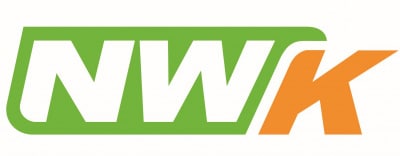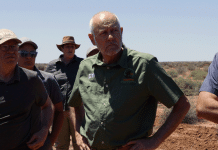NWK is verbind tot die deursigtigheid van sy silovoorrade en -werksaamhede, en verwelkom gereelde oudits wat onder meer deur die Johannesburgse Aandelebeurs (JSE) en Suid-Afrikaanse Graaninligtingsdiens (Sagis) onderneem word.
“Daar word beweer dat landboumaatskappye graan verkoop wat hulle nie in voorraad het nie, pryse manipuleer en kunsmatige tekorte skep. Volgens Nico Pieterse, senior bestuurder van graan by NWK, word ook beweer dat die JSE en Sagis nié gereelde oudits uitvoer om te bevestig dat silosertifikate wat uitgereik word, wel met die werklike hoeveelhede ooreenstem nie.
Dit volg nadat die JSE onlangs bevind het dat ʼn ander landboumaatskappy die rapporteringsreëls vir silovoorrade oortree het. Gevolglik het sommige graanprodusente die JSE van nalatigheid beskuldig en in mediaberigte beweer dat dit by ander landboumaatskappye óók gebeur en ʼn negatiewe uitwerking op graanpryse het.
Interne oudits van NWK se silo’s
Interne oudits word twee keer per jaar by NWK se silo’s uitgevoer. Die eksterne ouditeur, PwC, onderneem ook elke jaar ʼn oudit. Die JSE het in 2020 oudits by NWK se silo’s op Delareyville, Ottosdal, Koster, Vermaas, Bodenstein en Coligny uitgevoer. Voorts het die onafhanklike konsultant, Chris Sturgess, in opdrag van dié aandelebeurs, nóg twee bykomende oudits op NWK se silo’s en dié van sy konkurrente gedoen.
Sagis het onlangs ʼn fisiese oudit by NWK onderneem en dit geskied een keer elke twee jaar. NWK stuur ook maandeliks inligting rakende voorrade aan Sagis en die JSE, wat óók aan ʼn oudit onderwerp word.
“NWK se interne kontrolestelsels is van so ʼn aard dat jy nie graan kan verkoop as jy dit nié het nie. Graanvoorrade word daagliks deur silobestuurders gemonitor en by die onderskeie streeksbestuurders aangemeld, waarna NWK se voorraad- en finansiële afdelings dit nagaan.”
Oudits stop nie by silo’s nie
“Boonop stop oudits nie by silo’s nie. Meulenaars moet ook die hoeveelhede wat hulle aangekoop het, bekendmaak. Die hele waardeketting word aan oudits onderwerp en daar is gedurig kruisverwysings wat enige ongerymdhede met silosertifikate sal uitwys,” het Pieterse verduidelik.
“Integriteit was nog altyd een van die waardes waarop NWK sy sakemodel geskoei het. Suid-Afrika se oudste landboumaatskappy sal hom nie skuldig maak aan enige oortreding by die uitreik van silosertifikate nie,” het Theo Rabe, hoof uitvoerende beampte van NWK, beaam.
Vir meer inligting, kontak Johan Bezuidenhout by 018 633 1368, stuur ʼn e-pos aan jbezuidenhout@nwk.co.za of besoek NWK se webwerf

NWK is committed to the transparency of its silo quantities and operations, and welcomes the regular audits performed by the JSE, as well as the South African Grain Information Service (Sagis).
“It is alleged that agricultural companies sell grain which they don’t have in stock yet, manipulate prices, and create artificial shortages. It is also alleged that the JSE and Sagis do not undertake regular audits to verify that the silo certificates issued correspond with actual quantities,” said Nico Pieterse, senior manager of grain at NWK.
This follows a recent discovery by the JSE that another agricultural company had transgressed the reporting rules of silo quantities. Some grain producers subsequently accused the JSE of negligence and alleged in media reports that it occurs at other agricultural companies too, and that this practice has a negative impact on grain prices.
Internal audits at NWK silos are conducted twice a year, and external auditor, PwC, also conducts an annual audit. In 2020, the JSE performed no fewer than six audits at NWK’s silos at Delareyville, Ottosdal, Koster, Vermaas, Bodenstein, and Coligny. Furthermore, the independent consultant, Chris Sturgess, undertook two additional audits at NWK’s silos and those of its competitors, by order of the JSE. At the time of writing, Sagis was conducting a physical audit at NWK, which takes place once every two years.
Rigorous practices remain the norm
NWK also supplies the JSE and Sagis with monthly reports on quantities that are subject to an audit. “NWK’s internal control systems is of such a nature that you cannot sell grain if you don’t have it. Grain quantities are monitored daily by silo managers, who report these numbers to regional managers, after which they are verified by NWK’s stock and financial divisions.
“Audits do not stop at silos. Mills also have to disclose the quantities they purchase. The entire value chain is subject to audits, and there are constant cross references which will point out any discrepancies on silo certificates,” Pieterse explained.
“Integrity has always been one of the values on which NWK bases its business model. South Africa’s oldest agricultural company will never transgress when issuing silo certificates,” Theo Rabe, CEO of NWK, concluded.
For more information, contact Johan Bezuidenhout, on 018 633 1368, jbezuidenhout@nwk.co.za, or visit www.nwk.co.za.







